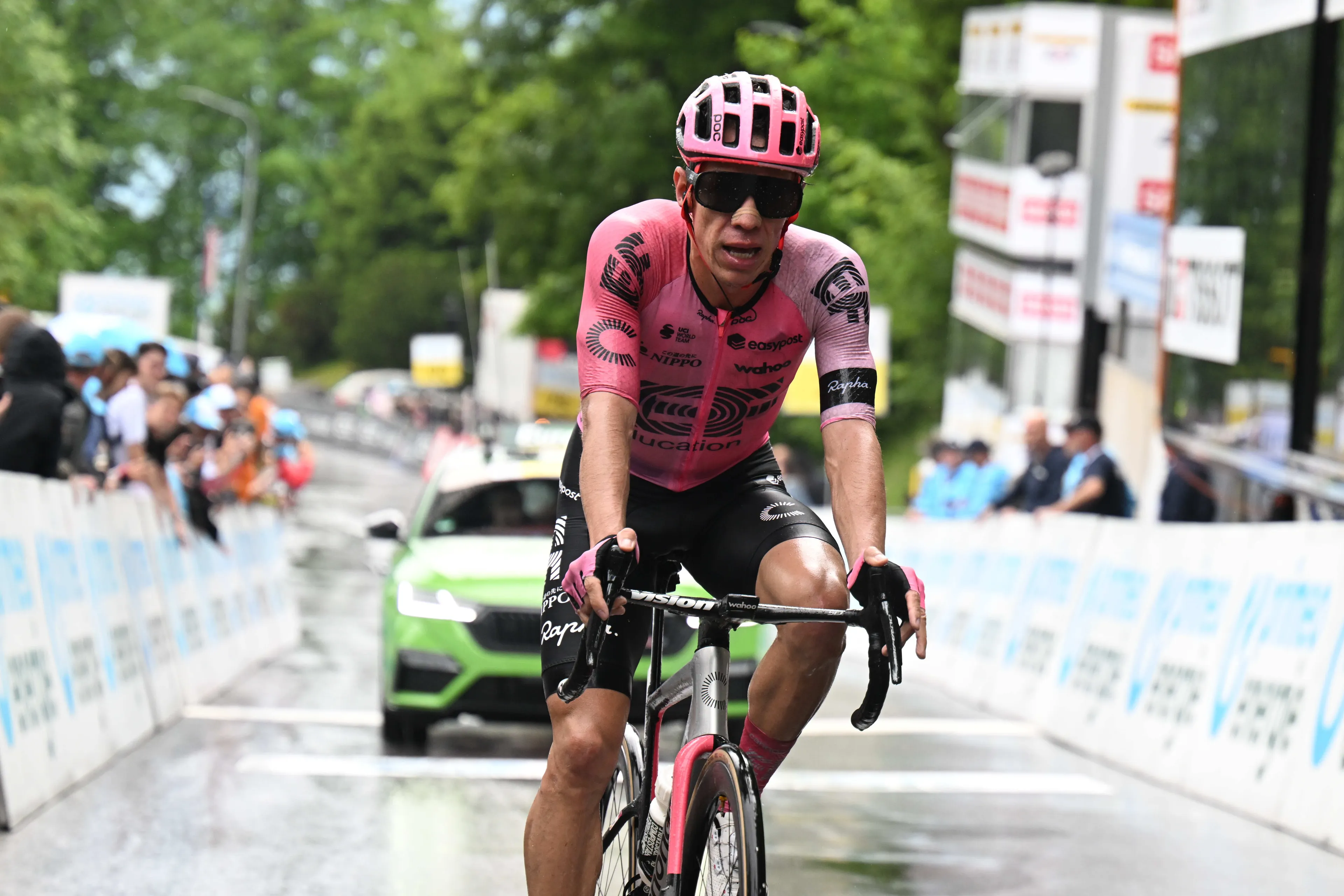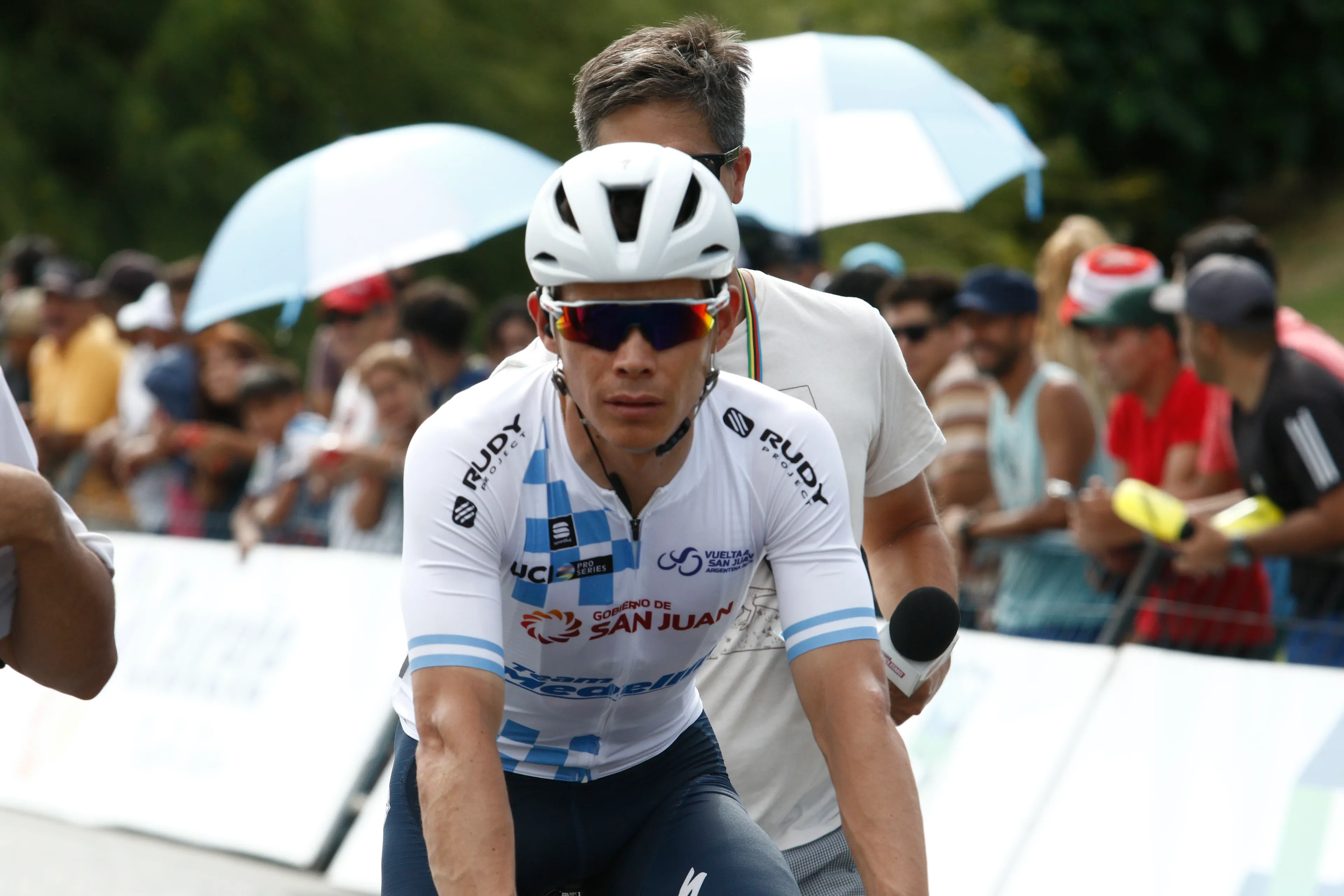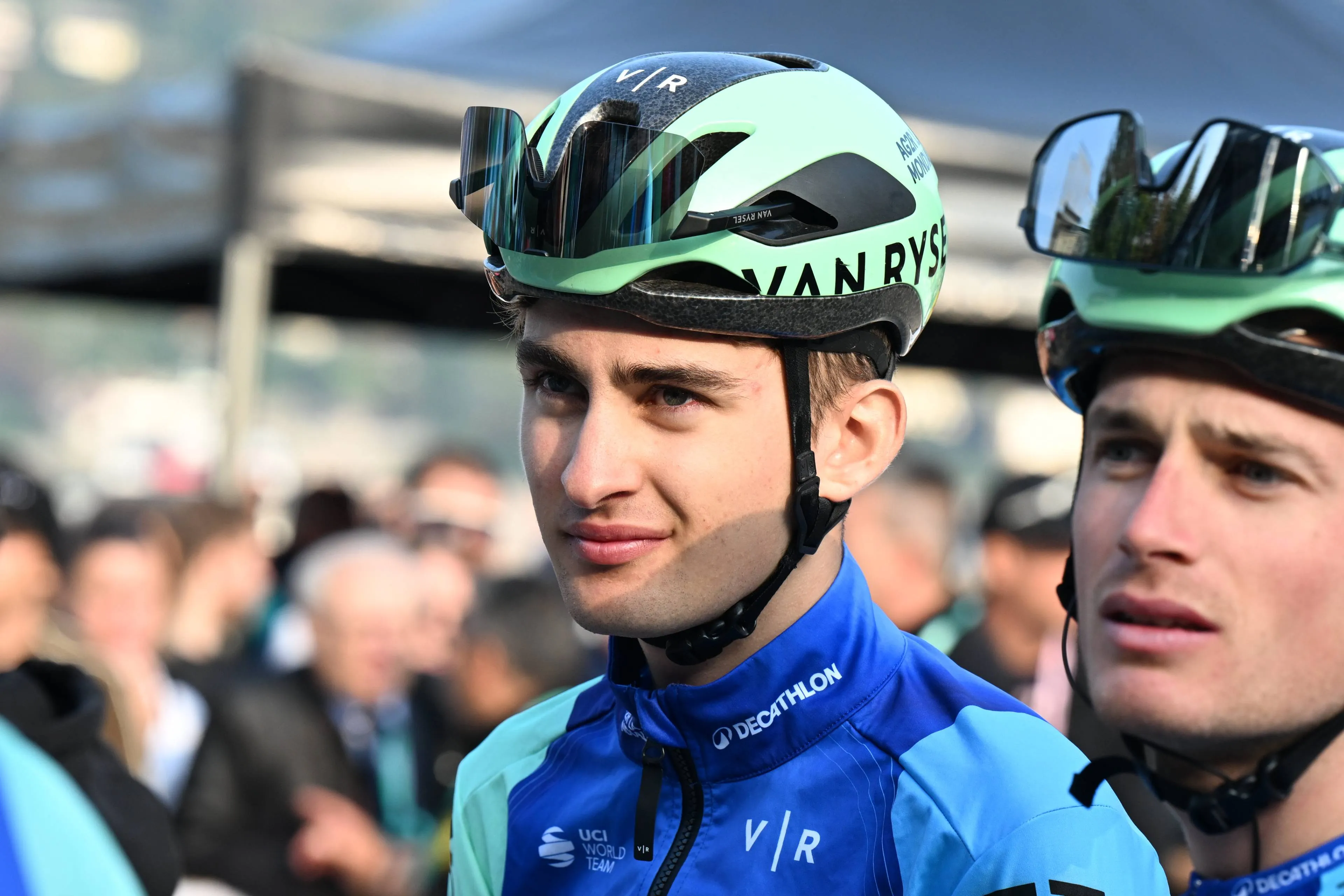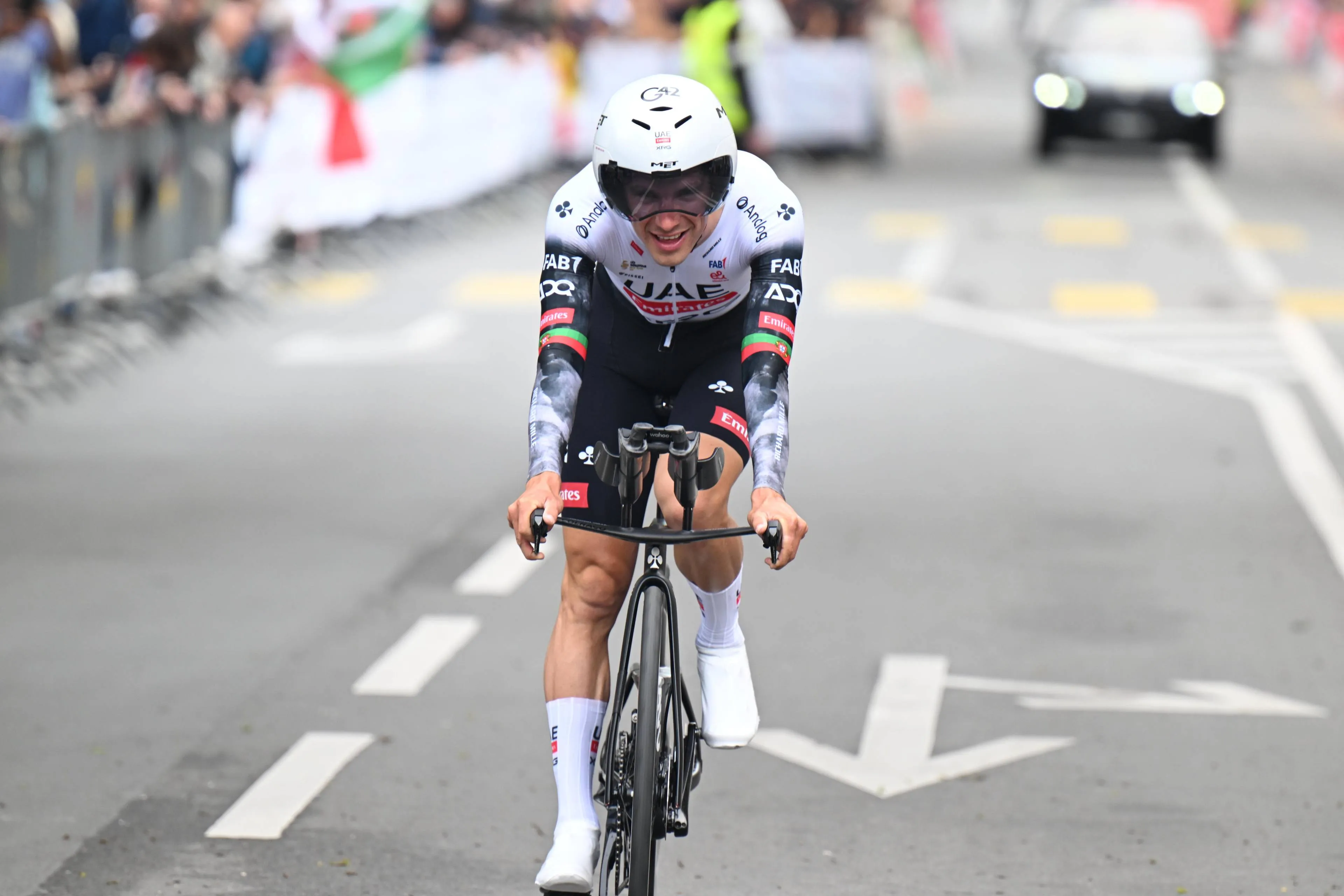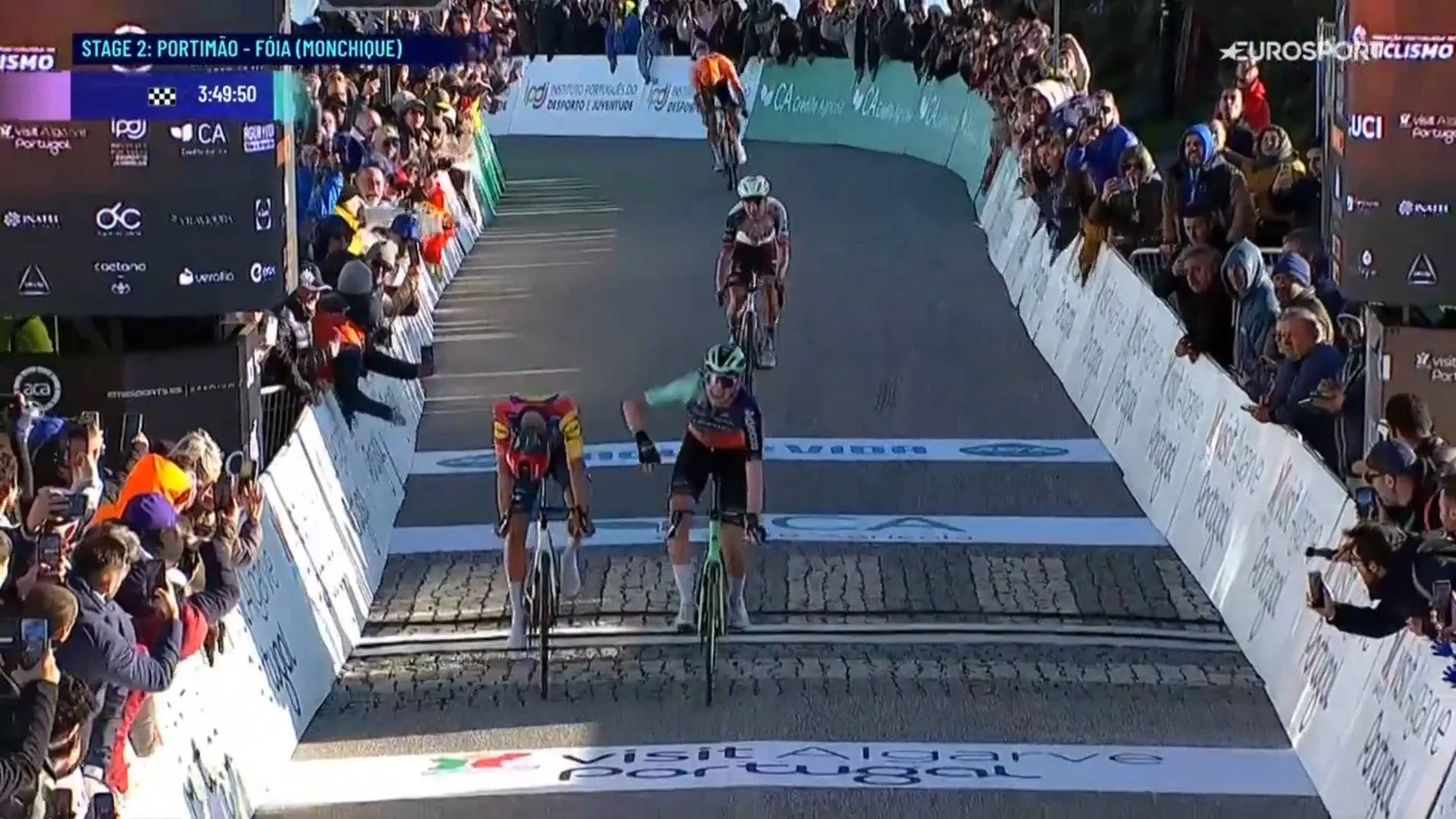Urán, on the problems of Colombian cycling: "In Europe at 16 years old they train like professionals, in Colombia some of them only eat once a day"
CyclingWednesday, 23 August 2023 at 22:00
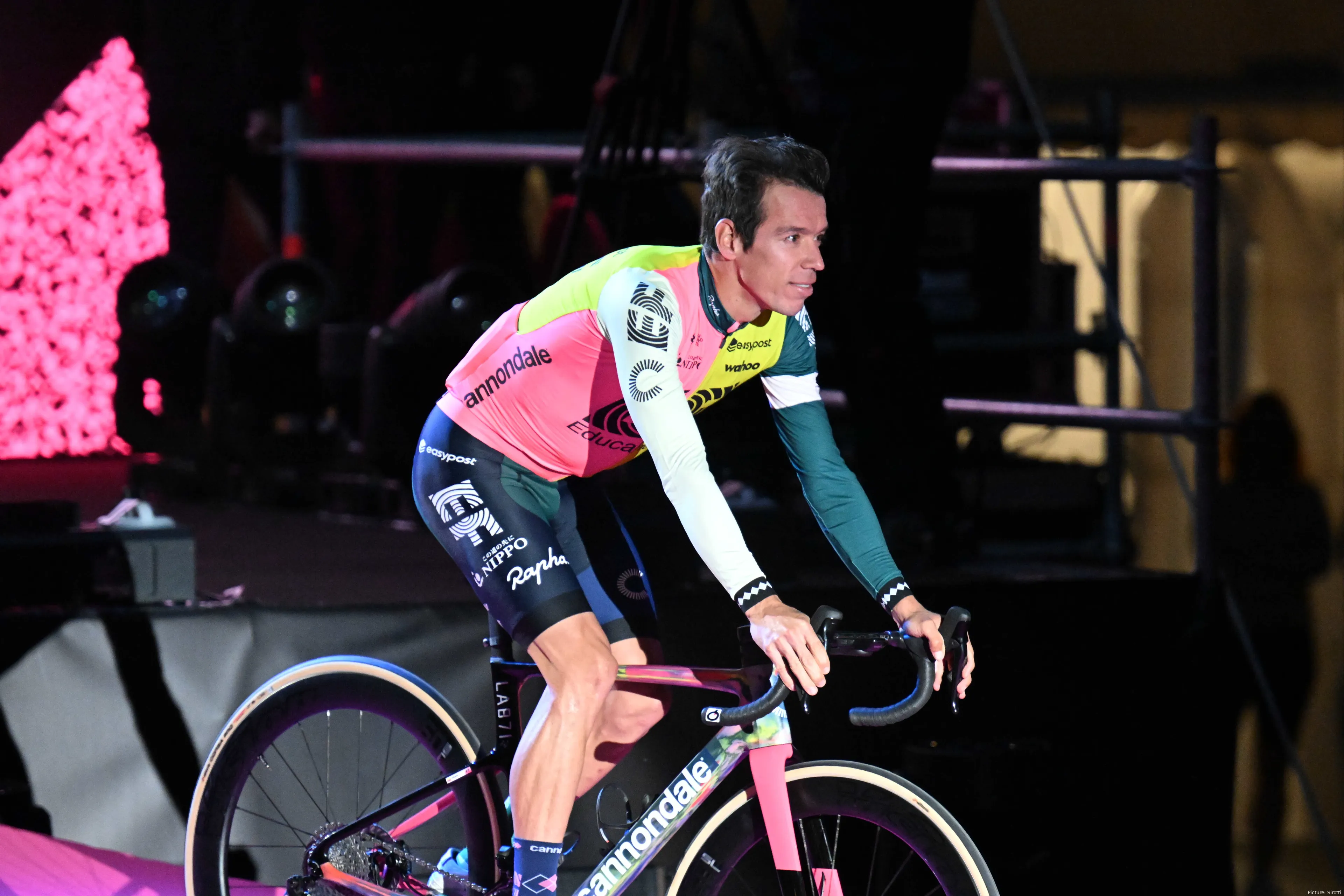
Rigoberto Urán has shed light on the roots of the brake on the production of top cyclists in Colombia. In a frank and critical analysis, Urán has identified crucial factors that have limited the progress of young talent in the country.
One of the main concerns pointed out by Urán is the lack of investment in the base of Colombian cycling. He stated forcefully that although there is potential in terms of talent, this potential often goes untapped due to a lack of resources and support in the formative stages. Urán stressed the need to channel social investments to properly nurture young cyclists and provide them with opportunities to grow, without forgetting the importance of not overburdening them with excessive pressures.
Read also
The issue of nutrition is another crucial point that Urán highlights. He notes that many young cyclists and athletes in Colombia are often limited by insufficient food, even eating only once a day. Urán stresses how nutrition directly influences athletic performance and points out that lack of support gets to some athletes, hindering their overall development. He himself considers himself fortunate to have had more resources and support in his career.
Urán exposes a stark reality in describing the gap between Colombian and European cycling in several aspects. He highlights how in Europe, cycling is advancing at great speed, with a focus on technique, nutrition and early professionalization. As European teams become more competitive, patience quickly runs out. Urán notes that this gap also affects traditionally powerful cycling nations such as Spain and Italy.
Read also
The difference in training methods, technology, nutritional advice and other essential elements between Europe and Colombia is evident. Urán notes that in Europe, young cyclists are trained to professional standards from an early age, with the availability of resources such as personal nutritionists and power meters. In contrast, in Colombia, the lack of economic and technological resources limits the potential of developing cyclists.
Urán concludes that the disparities between Colombian and European cycling are notable and complex to overcome. Although the European model has proven to be effective in training talent from an early age, the investment required to implement it in Colombia is significant.
Urán recognizes that it is unrealistic to expect young Colombian cyclists to have access to all these advanced tools if there are not enough resources available in their homes. This reality poses crucial challenges for the sustainable development of high-level cycling in Colombia in the midst of a complex economic and social situation.
Read also
claps 0visitors 0
Just in
Popular news
Latest comments
- This excuse is harmless, just quaint and amusing. The excuse I really disliked was when he accused a mechanic of improperly adjusting his saddle, endangering the mechanic's job: blaming others for your own limitations is a serious matter.
 maria2024202419-02-2026
maria2024202419-02-2026 - ok so this is impressive - I trashed this guy all winter, get a pro win before the anointing. against a quality field. And Onley and Riccitello look good too. fun to see young blood.mij19-02-2026
- Minor flaws.... thats like suggesting Genghis Khan was a bit aggressive with other countriesslappers6619-02-2026
- Then you carry on if that's what makes you happyslappers6619-02-2026
- Fabio cannot catch a break.mij19-02-2026
- OK, today is the "air conditioner"... yesterday was a cramp... on saturday a bee will sting him in his tongue... his tongue will swell up and mustafa gets no oxygen. Because of his swollen tongue, Remco won't be able to give us a new excuse. Remco and the spanish rat Ayuso should be on the same team. They both have a ton of excuses and both of them are liars. Ad acta.Mou-Cro-HR19-02-2026
- Florian Lipowitz is secretly happy
 Rafionain-Glas19-02-2026
Rafionain-Glas19-02-2026 - The crucial thing to remember is that Remco was broken by the pace of Gall and Tiberi, not Del Toro's. Remco's excessive antics are because he doesn't want anyone to think that he's 'genuinely' struggling. You can always say 'he got cramps' because 'his preparation didn't go to plan', but the thing is that there is a limit to the number of excuses and exceptions that there can be. Eventually everyone just accepts that he's reached his ceiling on the climbs.
 Rafionain-Glas19-02-2026
Rafionain-Glas19-02-2026 - Bahraini suspicious..Santiago19-02-2026
- The problem is, a British 'boss' opening the gates, when the native workers not wanting them!
 leedorney19-02-2026
leedorney19-02-2026
Loading
Write a comment
